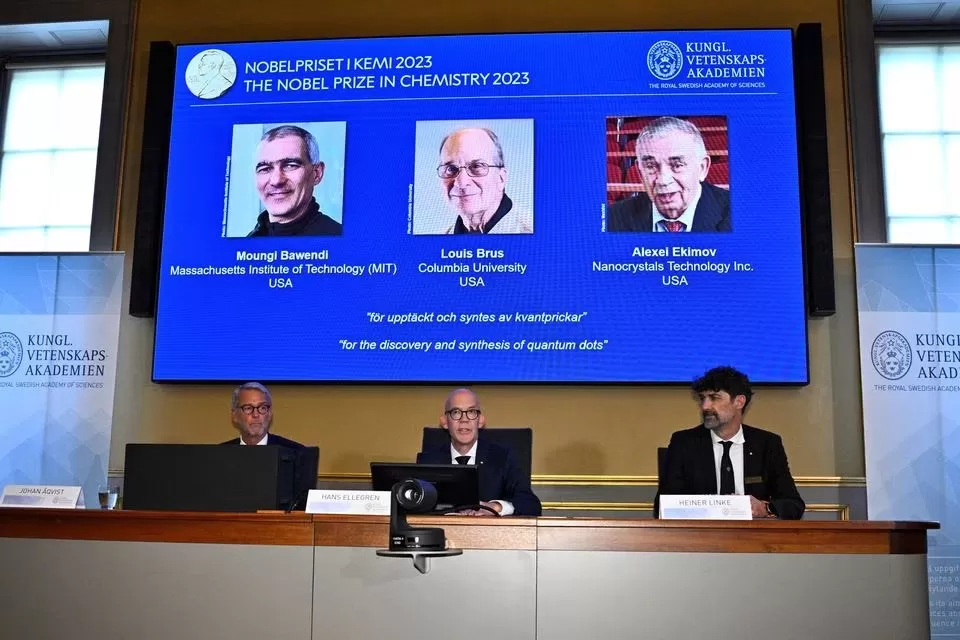Nobel Honors Trio for Quantum Dot Chemistry Breakthrough

Watan – In a groundbreaking achievement, scientists Munji El Bawendi, Louis Brus, and Alexey Ekimov have been honored with the 2023 Nobel Prize in Chemistry. Their pioneering work revolves around the “discovery and synthesis of quantum dots,” which are now integral to modern technology, illuminating computer and television screens, and aiding medical professionals in tumor mapping.
“Reuters” reported that the Nobel Chemistry Committee, said, “The Nobel laureates produced tiny particles with properties defined by quantum phenomena. These quantum dots have become crucial in nanotechnology.”

Quantum dots hold vast potential. Experts believe they will transform flexible electronics, tiny sensors, ultra-thin solar cells, and secure quantum communications. Currently, they’re in LED lights and guide surgeons in removing cancerous tissue.

The Royal Swedish Academy of Sciences has awarded this prestigious prize for over a century, with a value of 11 million Swedish krona (approximately 997,959 USD).
Earlier today, the Academy accidentally released the names of this year’s Chemistry Nobel winners.
On hearing about his significant win, Bawendi, speaking from the U.S., said he felt both surprised and honored. “I never saw this coming,” he shared.
Johan Åqvist, the Nobel Chemistry Committee’s chair, emphasized the quantum dots’ unique feature: they emit different colored lights based on their size, without changing their atomic composition.
Munji El Bawendi’s Background
Bawendi is a professor at the Massachusetts Institute of Technology (MIT), Brus is an honorary professor at Columbia University, and Ekimov works at Nanocrystals Technology Inc.

Bawendi was born in Paris and grew up in France, Tunisia, and the United States. He conducted postdoctoral research under Brus, then joined MIT in 1990 and became a professor in 1996.
This year’s third Nobel Prize, in Chemistry, follows the announcements for Medicine and Physics. Last year, the Chemistry Prize recognized Carolyn Bertozzi, Morten Meldal, and Barry Sharpless. They innovated “click chemistry” and identified reactions enabling molecules to form new compounds.
You might like:
Ismailia Directorate Fire: Casualties Unconfirmed




